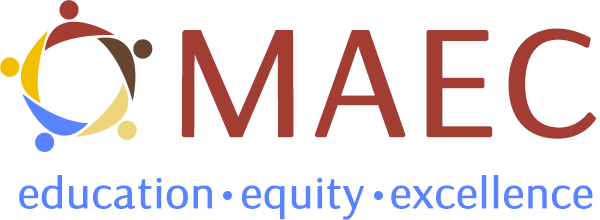Community Resource Mapping – FSCE
MAEC uses a strengths-based approach for asset mapping, since often the best solutions come from within the communities in which our districts/schools reside. These key stakeholders include districts, schools, communities, and families all who are seeking to increase student achievement. To this end, MAEC conducts community walks and community resource mapping to identify potential partners and allies for effective and efficient delivery of services. This process includes attention to alignment between district and school needs and priorities so together partners can build the social and human capital that will help students and staff thrive.
Comprehensive Needs Assessment
Beginning with a disaggregated data analysis of student achievement, student discipline, and school climate, MAEC is able to effectively determine client strengths and areas of need. This collaborative inquiry approach enables MAEC to examine multiple sources of data. Using a culturally responsive and equity framework, further creates opportunities to develop operational action plans to tackle complex challenges that pose barriers to gains in student achievement.
Culturally Responsive Family, School, and Community Engagement
When families’ partner with schools and community organizations, children thrive. To produce the best results for students, MAEC builds the capacity of families, educators, schools, and community organizations to collaborate, exchange ideas, and develop and implement policies and action plans. We build on the collaborative strengths of families, educators, and community members so they can each contribute to the development and success of diverse students.
Culturally Responsive Leadership
Leaders set the tone and expectations of any organization. They do this by responding effectively to the diverse communities that they serve, being asset-focused, and proactive problem solvers. Culturally responsive leadership technical assistance provides a multi-dimensional framework that builds capacity of educators who are culturally informed and highly skilled in culturally responsive practice.
Culturally Responsive Pedagogy
Culturally responsive pedagogy is a method and practice of teaching in which educators and providers build on the assets that their students and families bring into the classroom. As the populations of our students grow more diverse, staff must be better prepared to respond to their needs. This requires a greater understanding and knowledge of their students’ culture, strengths, and socio-political contexts. With this practice, schools can become hubs of learning focused on the well being of the students and families being served.
FSCE Title I and Title III Plans: Plans to Engage Families of Low-Income (Title I) and Limited English Proficiency (Title III) Students
High-impact, authentic engagement of families with diverse backgrounds requires targeted skills, perspectives, and other considerations in order to be effective. MAEC works collaboratively with districts and/or schools to develop comprehensive plans, tools, and monitoring instruments that are designed to measure effectiveness and alignment between FSCE programs and federal/state/district policies in order to increase achievement.
FSCE Trainer-of-Trainers
Successful high-impact FSCE depends on the skills and knowledge of a variety of stakeholders. MAEC conducts FSCE Trainer-of-Trainers for Title I and Title III family engagement specialists, ESOL teachers, and counselors to increase the capacity of staff to engage diverse families in their children’s education.
Parent Academy Planning and Monitoring
Parent academies are a great way for schools and districts to engage families. However, to be effective requires intentional and strategic planning. MAEC facilitates the development of a comprehensive district-wide approach for action planning, provider identification, and outcome monitoring to ensure parent academy success.
Parent Leadership Trainer-of-Trainers
Strong FSCE is built on the collaboration between schools and families. MAEC delivers a FSCE trainer-of-trainers model to district/school parent outreach staff to develop a strong cadre of parent/community leaders. Schools and districts are most successful when parent/community leaders can successfully navigate their children’s schools, including understanding the importance of being engaged in their children’s education, advocating for access to rigorous curriculum, and collaborating with school staff in shared decision-making to better serve students.
Policy & Procedural Reviews
In educational systems, policies and procedures often inform practice. However, some policies or procedures may have unintended consequences when implemented that serve to further silo organizational efforts to close opportunity gaps. To address this challenge, MAEC provides state departments, districts, schools, and organizations with policy and procedural reviews to ensure they are equitable, effective, and comply with federal, state, and local laws and regulations.

